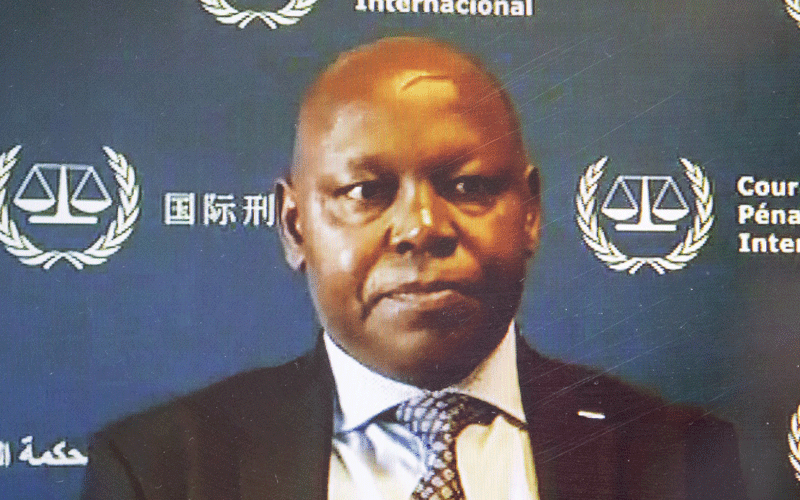Lawyer Gicheru paid me Sh2m – witness
By Bernice.Mbugua, February 23, 2022The second witness in the case against lawyer Paul Gicheru at the International Criminal Court (ICC) yesterday said he had been paid Sh2 million by lawyer Paul Gicheru not to be a witness in Deputy President William Ruto’s case.
Gicheru is facing eight counts relating to corruptly influencing witnesses regarding cases from the situation in Kenya.
But witness P0341 was hard pressed to provide documents he signed not to testify in the case. He had in his testimony claimed he signed affidavits and an agreement indicating his withdrawal as a witness in Ruto’s case but was not given a copy.
Gicheru’s lawyer Michael Karnavas tore into the evidence adduced by the witness noting that no documents were provided by the prosecution showing the agreement or contract.
“You tell us that you signed agreements and contracts not to be a witness against Deputy President William Ruto, yet we don’t have them, we can’t find them. The prosecution hasn’t produced them. So all we have is your word that you actually signed those contracts,” said the lawyer.
The witness claimed he did not follow up on the agreement as it was not sent to him. He added that agreement was written in English which he did not understand.
The witness had in his evidence in chief produced bank statements indicating that he was paid over Sh2 million by Gicheru.
He had also produced records showing his communication with the lawyer.
Karnavas, however, poked holes in the evidence claiming the bank transactions did not in any way show that the money came from Gicheru.
According to the defense, the witness made mere allegations with nothing concrete to support them.
“Now, from the documents that were shown to you, I don’t see anything in your bank statement that says that money came from either Gicheru or Person no 19, or somebody else, it just said that you deposited the money, is that true,?” posed Karnavas.
“They didn’t give me a cheque. They gave me cash and that’s why it doesn’t show where the money came from because they were giving me cash and not a cheque,” the witness replied.
“How do we know that money came from Gicheru and not from one of your relatives? Can you prove today to this court?” asked the lawyer.
“I was given money by them, they even told me that I should not deposit that money in the bank account but on my own will I deposited that money in my bank account,” replied the witness.
Call logs
The witness further insisted that he communicated with Gicheru on phone several times, adding that phone records would confirm that.
“I don’t understand why you say there were no conversations. I communicated with him through the phone several times,” claimed witness P0341.
The defense lawyer however argued that the prosecution had not produced in court any record confirming the conversation actually occurred apart from the call logs.
“We have the logs, your honour, but we don’t see any communications. It’s just a name and a log and I’m not suggesting that it’s not there. He could have put it in himself,” claimed Karnavas.
The lawyer asked the witness whether the number he claimed Gicheru communicated with was on the business card which he had allegedly been given by Gicheru.
“I cannot remember, we have to compare the numbers because Gicheru had a lot of different numbers, but the number that I used to communicate with him is the one he gave me,” claimed the witness.
Karnavas also took up the issue of the witness claiming that he was very vocal and very public in his advocacy as a post-election violence victim.
“You told us yesterday that you talked and you were making public speeches and attending all these victims meetings and being very vocal all the way up until 2013, is that right,?” asked the lawyer.
“It is up to 2014,” replied the witness
“Yet the only thing that we really have that was produced by the prosecution other than what we saw today were a notebook and an article dated 2009 where we see your picture and your name… Nothing in 2010, 2011, 2012, 2013 or even 2014, we don’t have anything except your word,” said Karnavas.
“As far as I’m concerned, I attended many, many meetings,” the witness maintained.
“Your Honour, I could not buy all the newspapers. Sometimes I was told that you appeared, you featured in the newspaper, but I could not buy the newspapers because I live in a remote area and I did not go to town to buy the newspapers,” he added.
He further told the court, sitting at The Hague, the Netherlands that most newspapers in Kenya were in English with very few in Kiswahili, which he understands.
